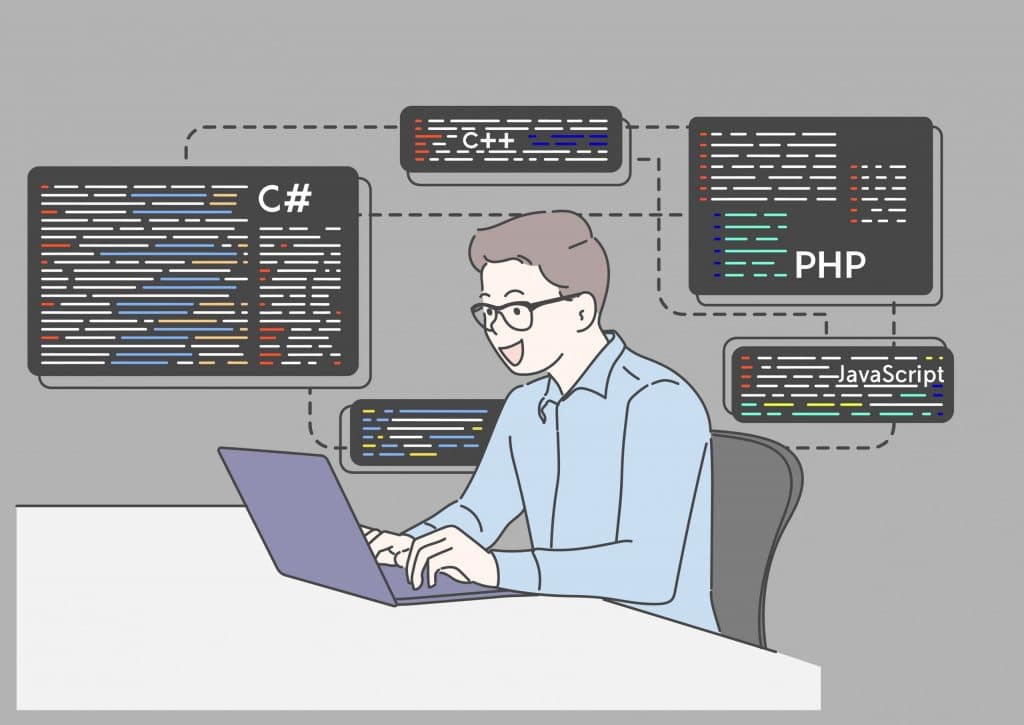





Your expertise and professionalism carry more weight than a piece of paper with a degree in this field, as they do in many others. Many Software Engineer jobs are available if you can learn what you need to bring to the table and deliver. Read on if you’re considering a career as a Software Engineer and what skills you’ll need to succeed. We’ll go over what a Software Engineer performs, what abilities are required, how to design a resume, and how to develop your software engineer portfolio.
Whether you’re re-entering the workforce or stuck in a career you dislike (administration, operations, banking, etc.), becoming a software developer is totally within your grasp as long as you’re willing to put in the hard work.


A software engineer is someone who writes the code behind software products. Software engineering is a detailed study of engineering to the design, development and maintenance of software.
A Software Engineer’s toolbox is built on specific technical skills to create solutions and address challenges the team and the organization face. A Software Engineer needs to have or develop the following skills:
Soft skills are those skills that, while not necessarily involved in coding, are still essential to the process of designing, producing, and presenting solutions. In many cases, soft skills involve interacting with others on your team or other stakeholders.
Empathizing involves putting yourself in someone else’s shoes. It’s different from sympathy, which involves merely understanding how someone else feels. So, an empathetic person can feel the emotions of others and imagine how their challenges impact them on a personal level. With empathy, you can understand why an executive feels pressure from stockholders to get a solution ready before the next fiscal year begins. You can also understand the feelings of someone else on the team who put in a lot of time and effort — only to have their solution fail, perhaps multiple times.
Communication also plays a central role in conveying the effectiveness of your solution to managers and executives. Whether presentations or chats across a table, these discussions need to take place to make it easy for the stakeholder to understand what’s going on. And a good Software Engineer needs to be able to get their ideas across in a way that makes sense to people who don’t have a technical background.
Despite processing times that can take only nanoseconds, the overall software development life cycle is often very time-consuming. Developing the soft skill of patience will help you:


All software engineers need to be proficient in one or more of the following programming languages.


If you don’t have work experience, this section is the most important part of your resume. Projects can be anything programming-related, be it a Python script, Java program, webpage, or mobile app. Don’t just list the technologies and languages you know; show how you’ve used them. Assuming you’re submitting an electronic copy of your resume, embed hyperlinks to each project within your resume. Select projects that show a variety of skills, such as using standard frameworks/libraries, understanding full-stack development, creating mobile apps, and setting up a development environment.
Many software developers use their GitHub profile as both a portfolio and a place where they practice coding projects because it shows potential hiring managers all of the open-source projects you’ve contributed to as well as projects you’ve started. Your dashboard indicates at-a-glance how often you commit code and how popular your code is. Consequently, GitHub is one of the first destinations hiring managers go to evaluate a candidate’s web presence.
One of the most common ways in which software engineers learn about job opportunities is through word-of-mouth and referrals. If you’re currently enrolled in a boot camp or online course, make the most of the support network of mentors and career counsellors available to you. If you’re working for an organization, proactively reach out to software engineers and managers within the company.
Think about the kind of position you’d like to hold within a company. Your portfolio should contain a variety of applications to let interviewers see that you can back up the skills highlighted in your resume. Expand beyond the projects you built for school or through a boot camp. Talk about how your work on different projects impacted your desire to continue pursuing software engineering. Create projects that highlight your innovation and ability to develop solutions that can benefit companies where you wish to apply.
© 2023 Torilo Academy. All right reserved
© 2021 Torilo Academy. All right reserved